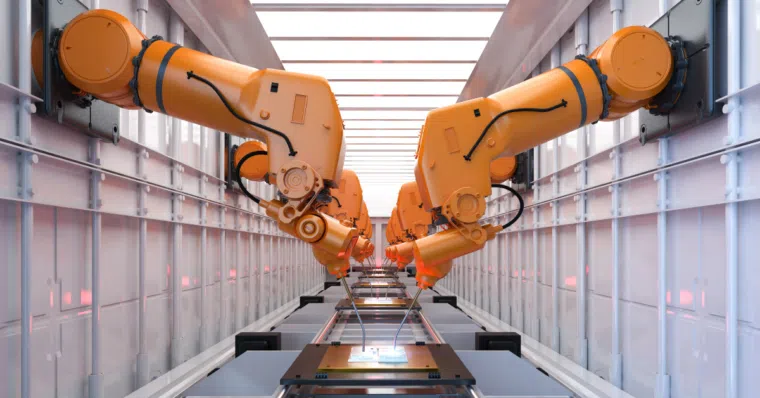
The Ultimate Guide to AI & Automation in the Workplace
1. Introduction
Artificial Intelligence (AI) and automation are no longer just futuristic concepts—they are transforming the way businesses operate today. From automating repetitive tasks to enabling predictive decision-making, AI is helping organizations increase efficiency, reduce costs, and stay competitive in a rapidly evolving digital world.
This eBook serves as a comprehensive guide for business leaders, managers, and employees who want to understand how AI can be leveraged effectively in the workplace.
2. Understanding AI & Automation
-
Artificial Intelligence (AI): The simulation of human intelligence by machines that can learn, reason, and make decisions.
-
Automation: The use of technology to perform repetitive tasks with little or no human intervention.
Key Differences:
-
AI focuses on learning and decision-making.
-
Automation focuses on repetition and efficiency.
-
Together, they create smart systems that not only automate processes but also adapt and improve over time.
3. The Evolution of Workplace Technology
-
Industrial Revolution (Mechanization): Manual labor replaced with machines.
-
Digital Revolution (Computing): Introduction of computers, internet, and basic automation.
-
AI Revolution (Smart Automation): Intelligent systems capable of analyzing data, making predictions, and optimizing workflows.
4. Key Applications of AI in the Workplace
-
Customer Support: AI-powered chatbots and virtual assistants.
-
Recruitment & HR: Automated resume screening, AI-driven interview analysis.
-
Data Analytics: Predictive analytics for business forecasting.
-
Sales & Marketing: Personalized recommendations, AI-driven customer insights.
-
Operations: Supply chain optimization, demand forecasting.
-
IT & Security: Threat detection, automated incident response.
5. Benefits of AI & Automation for Businesses
-
Increased efficiency & productivity.
-
Reduced operational costs.
-
Better decision-making through predictive analytics.
-
Enhanced customer experiences.
-
24/7 availability of AI-powered systems.
6. Challenges & Risks of AI Adoption
-
High implementation costs.
-
Data privacy & security concerns.
-
Resistance from employees fearing job loss.
-
Ethical issues: Bias in AI algorithms.
-
Need for continuous monitoring and updates.
7. Industry-Specific Use Cases
-
Healthcare: AI for diagnostics and patient care automation.
-
Finance: Fraud detection, robo-advisors.
-
Retail: Personalized shopping experiences.
-
Manufacturing: Predictive maintenance, robotics.
-
Education: AI-driven personalized learning.
8. AI Tools & Platforms for the Modern Workplace
-
Project Management: Asana, Trello with AI integrations.
-
Communication: AI-enhanced tools like Zoom with real-time transcription.
-
Analytics: Power BI, Tableau with AI features.
-
Customer Support: Zendesk AI, Intercom.
-
HR & Recruitment: HireVue, Pymetrics.
9. How to Implement AI & Automation in Your Organization
-
Identify business processes suitable for AI.
-
Start small with pilot projects.
-
Choose the right tools & platforms.
-
Train employees on AI usage.
-
Scale gradually across departments.
10. Preparing Employees for the Future of Work
-
Upskilling and reskilling programs.
-
Promoting a culture of innovation.
-
Encouraging human-AI collaboration rather than competition.
-
Open communication to address fears and resistance.
11. Case Studies: Successful AI Implementations
-
Amazon: AI-driven logistics and personalized recommendations.
-
Netflix: Content recommendations based on machine learning.
-
Tesla: Autonomous driving and manufacturing automation.
-
Google: AI in search, ads, and workplace productivity tools.
12. The Future of AI & Automation
-
Greater integration of AI in daily tasks.
-
Rise of hybrid workplaces with AI collaboration.
-
AI governance & ethical frameworks.
-
Increased demand for AI-skilled professionals.
-
More accessible AI for small and medium businesses.
13. Conclusion
AI and automation are not just trends; they are long-term shifts that redefine how businesses function. By embracing these technologies strategically, companies can unlock innovation, efficiency, and growth.
If you want to explore more about how AI and automation can transform your business, visit ChronoLearn.net for training programs, courses, and expert consultations.
Tags :
- AI in the workplace
- Workplace automation
- Artificial intelligence for business
- Future of work AI
- AI and productivity
- Automation tools for business
- Digital transformation with AI
- AI in business strategy
- How AI is transforming the workplace
- Benefits of automation in business
- AI tools for small businesses
- Automation strategies for enterprises






